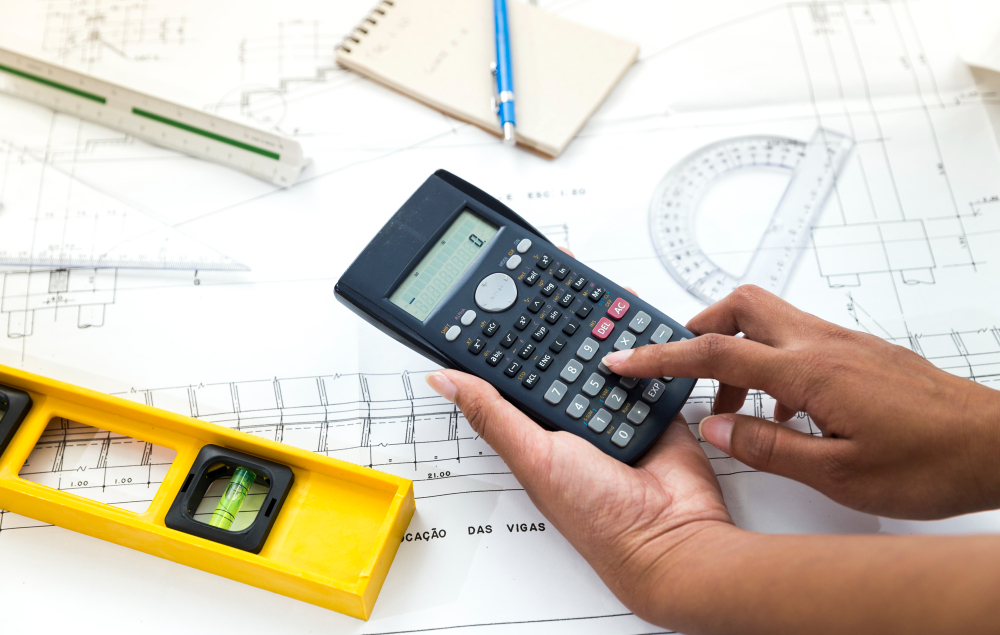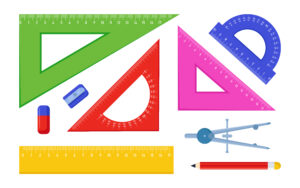The Biggest Mensuration Mistakes You Must Avoid
Math (Mensuration) is a crucial topic in geometry that deals with the measurement of various geometric figures, including their areas, perimeters, and volumes. Mastering this topic is essential for IGCSE and A-Level students, as it forms the foundation for many real-world applications. Below are some essential tips to help students excel in Math (Mensuration).
1. Understand the Basic Formulas
Math (Mensuration) is heavily formula-based. Ensure you memorise the key formulas for calculating areas, perimeters, surface areas, and volumes of different shapes. A few fundamental formulas include:
Area of a rectangle = Length × Breadth. This helps in determining the surface occupied by a rectangle.
Perimeter of a square = 4 × Side. This is useful in fencing problems or measuring the boundary.
Volume of a cylinder = πr²h. This formula helps in finding the capacity of cylindrical objects like tanks and pipes.
Surface area of a sphere = 4πr². This is essential for finding the external covering required for spherical objects like balls and planets.
Creating a formula sheet and revising it daily will help reinforce your understanding and retention.
2. Practice with Real-World Problems
Mensuration is widely used in real life, from architecture to engineering. Try solving practical problems, such as:
Calculating the amount of paint needed for a room: This involves finding the total surface area of the walls and ceiling.
Determining the material required to construct a fence: This requires calculating the perimeter of a land area.
Estimating water capacity in a cylindrical tank: This is done using the volume formula of a cylinder.
Applying Math (Mensuration) to real-world problems helps in better conceptual understanding and makes learning engaging.
3. Use Diagrams and Visual Aids
Drawing accurate diagrams for each problem can simplify complex concepts. Follow these steps:
Sketch the given shape and label all known values, such as length, breadth, radius, and height.
Break down compound figures into simpler ones (e.g., a cylinder with a hemisphere on top).
Use different colours to differentiate various parts of the shape.
Cross-check the diagram with the given problem statement to ensure accuracy.
Visual representation aids memory retention and improves problem-solving efficiency.
4. Solve IGCSE Past Papers
Practising IGCSE past papers is an excellent way to familiarise yourself with the exam format and question types. CKM Academy provides a vast collection of IGCSE past papers for Math (Mensuration) and other subjects on their website, www.ckmacademy.com. Regular practice with these papers helps in:
Understanding the types of questions that commonly appear in exams.
Improving speed and accuracy by solving problems within a set time limit.
Identifying strengths and weaknesses to focus on areas needing improvement.
5. Break Down Complex Problems
Some questions may involve multiple shapes, requiring step-by-step calculations. To handle them effectively:
- Identify the different shapes involved in the problem.
- Calculate each shape separately using the relevant formula.
- Add or subtract the obtained values as required.
- Ensure all units are consistent throughout the calculations.
This structured approach reduces errors and enhances problem-solving speed.
6. Utilise Interactive Learning Tools
Modern technology offers several resources that make learning more engaging, such as:
- Online simulators for visualising 3D shapes and their transformations.
- Video tutorials explaining step-by-step solutions to complex problems.
- Educational apps that offer quick formula revisions and practice quizzes.
CKM Academy incorporates interactive teaching methods, making Math (Mensuration) more engaging and easier to grasp.
7. Time Management in Exams
During exams, managing time efficiently is crucial for maximising scores. Follow these strategies:
Start with simple questions to build confidence and save time.
Prioritise questions based on marks and difficulty level to ensure you attempt all high-weightage questions first.
Avoid spending too much time on one question; if stuck, move forward and return if time permits.
Double-check calculations to prevent errors and ensure accuracy.
Practising timed mock tests can improve efficiency and accuracy in exams.
8. Seek Expert Guidance
If you struggle with any concept, seek guidance from expert educators. CKM Academy provides specialised coaching for IGCSE and A-Level students, ensuring a student-friendly approach to mastering Math (Mensuration). With a team of dedicated educators led by Ms Chaitali Mehta, CKM Academy fosters an environment where learning is interactive and enjoyable. Benefits of expert guidance include:
- Clarification of doubts through detailed explanations.
- Personalised coaching tailored to individual learning needs.
- Regular assessments and feedback to track progress effectively.
Ending Remarks
Mastering Math (Mensuration) requires consistent practice, strategic learning, and real-world application. By following these tips, students can develop a strong understanding of the topic and excel in their exams. CKM Academy offers expert guidance and extensive resources, including IGCSE past papers, to help students achieve academic success. Visit www.ckmacademy.com to access valuable learning materials and take your Math (Mensuration) skills to the next level.
Image Reference: Freepik
Disclaimer: All trademarks, logos, and brand names are the property of their respective owners. All company, product, and service names used in this website are for identification purposes only. Use of these names, trademarks, and brands does not imply endorsement.





